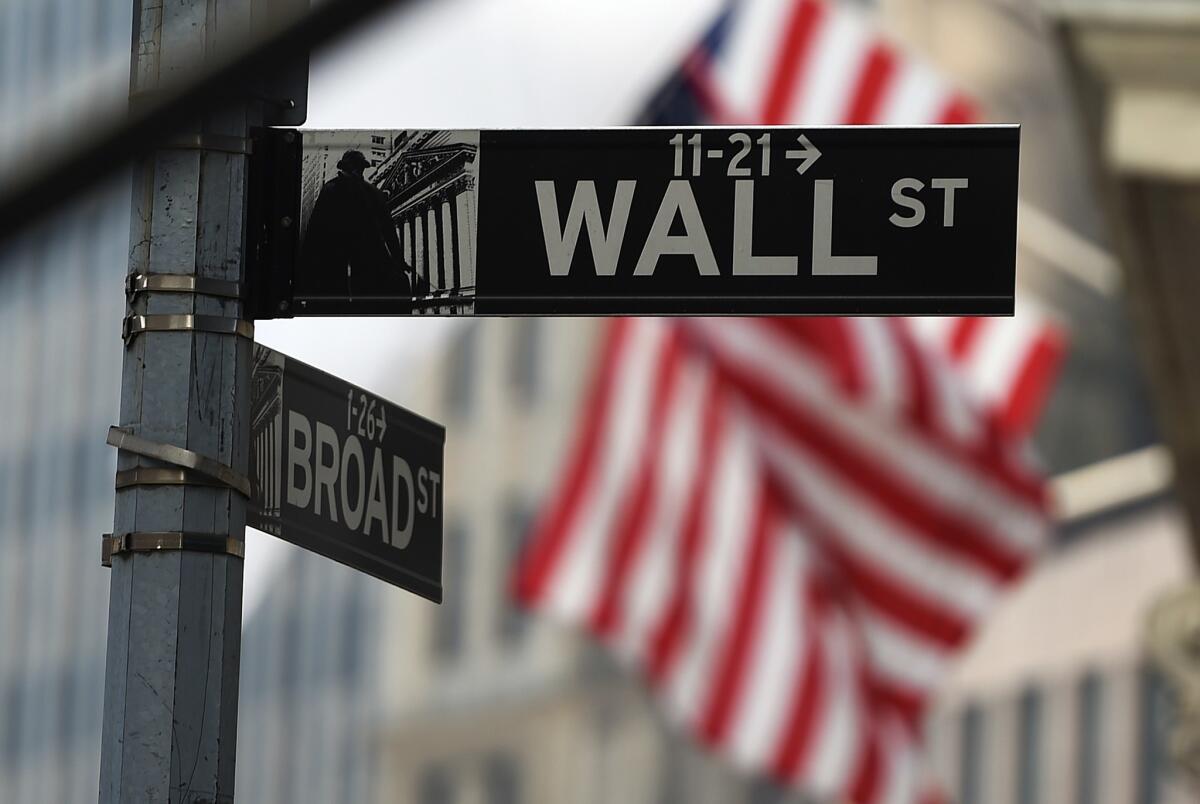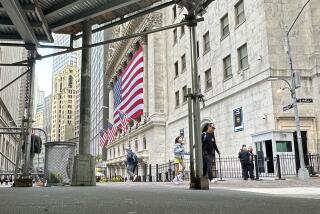Late drop in Big Tech stocks pulls indexes mostly lower

Wall Street capped a day of listless trading Thursday with a late-afternoon pullback led by technology companies that left the major stock indexes in the red.
The Standard & Poor’s 500 fell 0.4%. The benchmark index, which had been up by 0.4%, was weighed down by losses in Apple, Microsoft and other huge tech companies even though most of the stocks in the index rose. Those losses outweighed gains in banks, industrials and other sectors.
Small-company stocks bucked the trend and continued to rally, a sign that investors are feeling more optimistic about the economy. Treasury yields also rose. Still, the market pullback has the S&P 500 on track for its first weekly loss in three weeks.
The S&P 500 fell 14.30 points to 3,795.54. The Dow Jones industrial average slid 68.95 points, or 0.2%, to 30,991.52. The Nasdaq composite dropped 16.31 points, or 0.1%, to 13,112.64. The indexes are still close to their record highs set last week.
Markets have been mostly charging higher recently amid growing optimism that the rollout of COVID-19 vaccines will set the stage for a big rebound for the economy and corporate profits later this year. Expectations are also rising for another round of stimulus coming for the economy because Democrats are set to soon have control of the White House, Senate and House.
President-elect Joe Biden is pushing for a $1.9-trillion coronavirus plan that would include $1,400 checks for individuals on top of the $600 provided in the last COVID-19 bill. The plan would also extend a temporary boost in unemployment benefits and a moratorium on evictions and foreclosures through September. It also would provide funds for a mass vaccination campaign and a major expansion of local public health efforts.
The hope is that it can tide the economy over until COVID-19 vaccines get daily life back toward normal and trigger a powerful recovery later this year.
Another discouraging report Thursday underscored how much damage the economy is taking as the pandemic worsens. Last week, 965,000 more U.S. workers filed for unemployment benefits as businesses shut down and lay off employees. That’s up sharply from the prior week’s tally of 784,000, and it was much worse than economists expected.
Such numbers could be fodder for critics of the stock market, who say prices have soared too high and look too expensive. But several analysts said they expect investors to continue to focus on hopes for a brighter future as temperatures warm and more people get vaccinated.
Stocks of companies that would benefit in particular from a healthier, reopening economy held up best Thursday.
Smaller companies jumped more than the rest of the market, as they often do when investors are upgrading their expectations for the economy. The Russell 2000 index of small-cap stocks rose 43.38 points, or 2.1%, 2,155.35, continuing its much better performance than the big stocks in the S&P 500 so far this year.
Airlines, oil producers and cruise-ship operators also clawed back more of their steep losses from last year, when sales for many of them suddenly vanished because of the pandemic.
Delta Air Lines rose 2.5% even though it said it lost more money during the last three months of 2020 than analysts expected. The airline said it sees business turning higher through 2021 as vaccinations become more widespread and offices reopen. By the spring, it expects to stop burning more cash than it brings in.
Poshmark surged 141.7% in its initial public offering, which was priced at $42 a share. The company connects buyers and sellers of secondhand fashion and home decor online. Petco, whose stores sell pet food and sometimes have veterinary hospitals, surged 63.3% in its first day of trading after its shares priced at $18.
Longer-term Treasury yields rose. The yield on the 10-year Treasury rose to 1.13% from 1.07% late Wednesday. It’s been climbing sharply recently on expectations that COVID-19 vaccines and the soon-to-be Democratically controlled Washington will lead to more federal borrowing, economic growth and inflation. The 10-year yield was at 0.90% less than two weeks ago, before two runoff elections in Georgia gave control of the Senate to Democrats.
One concern in the market has been about how much higher yields can go before upsetting the stock market. Low rates have been one of the main underpinnings for the market’s march to records even though the economy is still struggling.
Low rates mean bonds are paying less in interest, which can push some investors away from bonds and into stocks. They generally make investors more willing to push prices for stocks up even faster than their earnings are rising. Now, investors are paying the highest prices since the dot-com bubble was deflating in 2000 for S&P 500 stocks versus their earnings over the prior 12 months.
That has investors keeping a close eye on the Federal Reserve, which has said it plans to keep short-term rates low even after inflation rises passes its 2% target. Fed Chair Jerome H. Powell, speaking at an online event hosted by Princeton University, said Thursday that the time to raise interest rates “is no time soon.”
More to Read
Inside the business of entertainment
The Wide Shot brings you news, analysis and insights on everything from streaming wars to production — and what it all means for the future.
You may occasionally receive promotional content from the Los Angeles Times.










